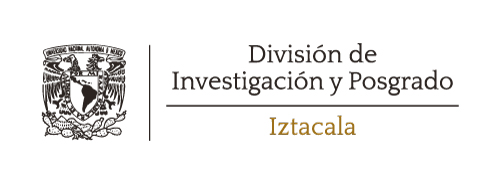
| Location within campus: | 2nd Floor of the Government Building (across from the Scholarship Department) |
| Phone: | 55 5623-1333 Ext. 39849 |
| Head of Laboratory: | Dr. Ana Luisa Mónica González Celis Rangel Doctorate in Psychology, Full Professor “C” algcr@unam.mx algcr10@hotmail.com |
| Researchers affiliated to the laboratory: | Dr. Karina Reyes Jarquín krjarquin@gmail.com Dr. María Leticia Bautista Díaz psile_7@yahoo.com.mx psile_7@unam.mx |
| Research lines per researcher: | (1) Integrated Program for Improving Quality of Life and Promoting Healthy Aging. (2) Psychological Assessment and Intervention in Chronic Patients, Older Adults, and Their Caregivers. (3) Body Composition and Quality of Life in Vulnerable Groups. |

Our research topics:
(1) The effect of a comprehensive cognitive-behavioral intervention program, consisting of six components – physical activity, relaxation, nutrition, social skills, emotion management, and recreational activities – is evaluated on indicators of healthy aging, quality of life, psychological well-being, and biological markers of physical (health status) and mental (cognitive functioning) capacity in two subpopulations with different levels of intrinsic capacity (high-stable and with certain decline) in explaining a model of healthy aging that optimizes the functional capacity of older adults.
(2) This research focuses on the caregiver-patient dyad (chronically ill individuals or older adults). The caregiver is the person who assists someone affected by any type of disability, impairment, or incapacity that hinders or prevents the normal development of their activities or social relationships. Psychological variables such as quality of life, psychological well-being, caregiver burden, and coping, as well as physiological aspects such as health status, are assessed in order to test cognitive-behavioral interventions and evaluate their effects on the components of the dyad.
(3) Assessment of quality of life and associated variables is conducted in vulnerable individuals such as adults and older adults, with or without chronic illnesses.

González-Celis, R. A. L., Chávez-Becerra, M., Maldonado-Saucedo, M., Vidaña-Gaytán, M. E., & Magallanes-Rodríguez, A. G. (2016). Purpose in life and personal growth: Predictors of quality of life in Mexican elders. Psychology, 7(5), 714-720. DOI: http://dx.doi.org/10.4236/psych.2016.75074. ISSN Print: 2152-7180 ISSN Online: 2152-7199. Google-based Impact Factor: 0.91 (GJIF for 2015).
González-Celis, R. A. L. & Gómez-Benito, J. (2013). Quality of life in the elderly: Psychometric properties of the WHOQOL-OLD module in Mexico. Health, 5 (12A), 110-116. DOI: http://dx.doi.org/10.4236/health.2013.512A015. ISSN Print: 1949-4998 ISSN Online: 1949-5005
González-Celis, R. A. L. & Raya-Ayala, L. E. (2017). Generatividad en adultos mayores mexicanos: Asociación entre interés y comportamientos generativos. Psicología y Salud, 27(1), 79-88. ISSN 1405-1109 Disponible en http://revistas.uv.mx/index.php/psicysalud
Huerta-Salinas, M. A. & González-Celis, R. A. L. (2019). Intervención cognitivo-conductual sobre la actividad física en adultos mayores con prediabetes. Revista Electrónica de Psicología Iztacala, 22(3), 2764-2781, ISSN 1870-8420. Disponible en https://www.iztacala.unam.mx/carreras/psicologia/psiclin/
Reyes-Jarquín, K., & González-Celis, R. A. L. (2016). Efectos de una intervención cognitivo conductual para disminuir el burnout en cuidadores de ancianos institucionalizados. Escritos en Psicología, 9(1), 15-23, DOI:10.5231/psy.writ.2015.1709. ISSN Edición Digital: 1989-3809 ISSN Edición Impresa: 1138-2635. Disponible en http://www.escritosdepsicologia.es/esp/numanteriores/vol9num1/vol9num1_2.html

| Entry profile of potential thesis students: | Students with at least 75% of the credits completed or graduates of the Bachelor’s degree in Psychology or related disciplines from FES Iztacala or another Higher Education Institution, with a minimum GPA of 8.5; or students from the Master’s and Doctorate Program in Psychology at UNAM, or related postgraduate programs. They should have competencies in conducting literature reviews and systematic reviews. Knowledge of methodology from a cognitive-behavioral perspective. Proficiency in using databases and statistical analysis with SPSS. English proficiency level A2. |
